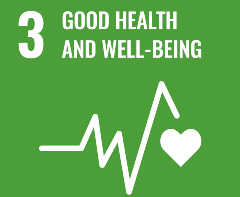.jpg)
How Jewish Orthodox women moved their religious practices online during COVID-19
Research from The University of Manchester explores how women in the Jewish Orthodox community have adapted their prayer practices to engage in global, female-only online prayer during the pandemic.
An opportunity for female-only spaces
Female-led public rituals are far from usual in the Jewish Orthodox community; where they do occur, they can be a contentious issue. During the COVID-19 pandemic, women and girls have found themselves marginalised when they entering religious physical spaces – distancing measures have increased their sense of separation.
Dr Katja Stuerzenhofecker, Lecturer in Religion and Gender at Manchester, has investigated the emergence of online spaces for female-only prayer during the pandemic. In a number of cases, the opportunity has been seized to create new communities for women and girls to actively participate in public rituals.
The pandemic has acted as a catalyst to get people doing things that we could have been doing before.
A participant in female-only online prayer
Identifying trends in the data
Online communities have utilised platforms such as Zoom and Facebook livestreaming to enable as many as 200 women and girls to simultaneously join together under female leadership. Dr Stuerzenhofecker found that holding these gatherings online has had numerous benefits for participants.
These include:
- bringing together like-minded women and girls who may be geographically distant;
- removing several barriers to participation that women encounter in Orthodox synagogues;
- giving women and girls the opportunity and confidence to sing aloud during prayer;
- normalising a dedicated public religious space without a male presence.
Adaptions of rituals across numerous religious communities
Dr Stuerzenhofecker’s research is part of the ‘Social Distance, Digital Congregation: British Ritual Innovation under COVID-19' project, led by Manchester Metropolitan University and the University of Chester. The project examines how religious communities across Britain have adapted during the COVID-19 pandemic.
Find out more
- Read Dr Stuerzenhofecker’s research update: The pandemic as a catalyst to do things that could have been done before. Jewish Orthodox female-only online prayer.
Meet the researcher
- Dr Katja Stuerzenhofecker, Lecturer in Gender Studies in Religion, School of Arts, Languages and Cultures.

